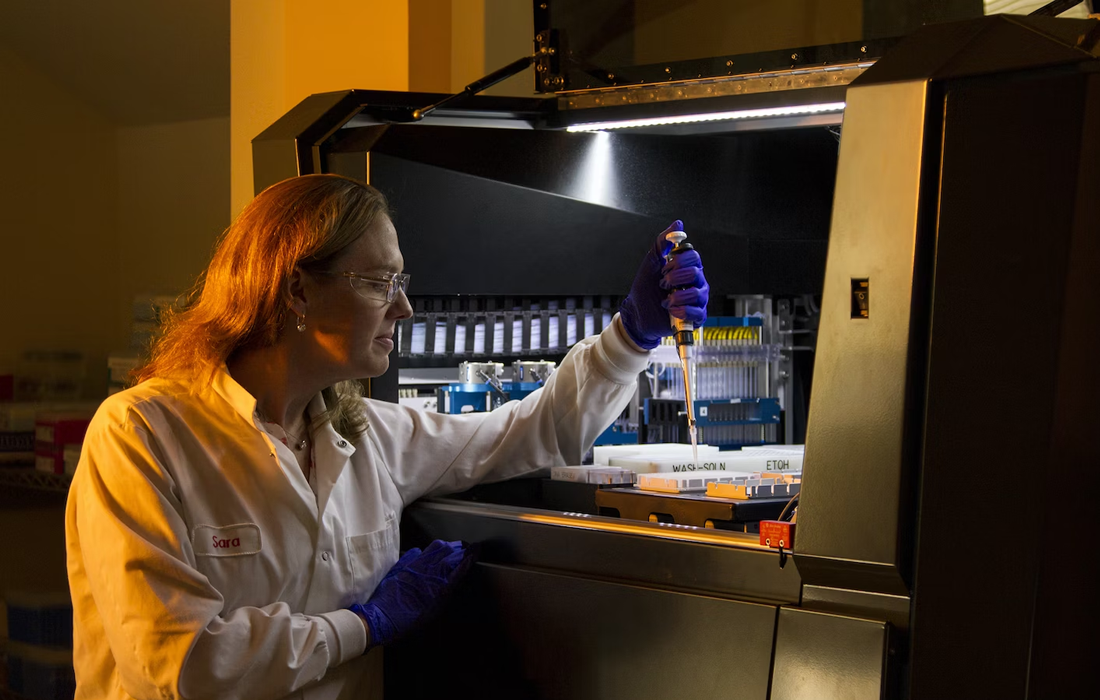Yale researchers have shown that placental examination resulted in the accurate pathologic determination of more than 90% of previously unexplained pregnancy losses, a discovery that they say may inform pregnancy care going forward. The findings were reported Sept. 19 in the journal Reproductive Sciences. There are approximately 5 million pregnancies per year in the United […]
Category Archives: Regenerative Medicine News and General Information
In a sign that exposure to certain endocrine-disrupting chemicals may be playing a role in cancers of the breast, ovary, skin and uterus, researchers have found that people who developed those cancers have significantly higher levels of these chemicals in their bodies. While it does not prove that exposure to chemicals like PFAS (per- and […]
A new study lends weight to the idea that vision problems and dementia are linked. In a sample of nearly 3,000 older adults who took vision tests and cognitive tests during home visits, the risk of dementia was much higher among those with eyesight problems. All of the older adults in the study were over […]
Epilepsy, a common brain disorder of which there are many different types, is known to have genetic components and to sometimes run in families. In a new study, researchers compared the DNA from diverse groups of almost 30,000 people with epilepsy to the DNA of 52,500 people without epilepsy. The differences highlighted areas of our […]
Researchers have discovered new insights into the regulation of fat metabolism. The focus of their study lies within the star-shaped non-neuronal cells in the brain, known as ‘astrocytes’. The complex balance between food intake and energy expenditure is overseen by the hypothalamus in the brain. While it has been known that the neurons in the […]
Attention-deficit/hyperactivity disorder (ADHD) is among the most common pediatric neurodevelopmental disorders. In 2019, nearly 10% of United States (U.S.) children had a diagnosis of ADHD. Approximately 3.3 million children, or roughly 5 out of every 100 children in the U.S., are currently prescribed medication for ADHD. In a new study, published today in Pediatrics, researchers […]
Autoimmune diseases are complex illnesses, the causes of which are diverse and have not yet been fully explained. A research team at MedUni Vienna has now discovered an immunoregulatory protein that could be linked to the development of autoimmune diseases such as rheumatoid arthritis. The study results were recently published in the Journal of Experimental […]
Recent advances in microscopic imaging by researchers from Japan have led to the exciting discovery of a small group of brain cells that control stress-induced responses. These cells could be the key to understanding the origin of stress-related mental disorders. Researchers from Osaka University discovered a small group of brain cells in the claustrum of […]
A new blood-based diagnostic test would be a major advancement for Parkinson’s disease, which afflicts 10 million people worldwide and is the second-most common neurodegenerative disease after Alzheimer’s. “Currently, Parkinson’s disease is diagnosed largely based on clinical symptoms after significant neurological damage has already occurred,” said senior author Laurie Sanders, Ph.D. “A simple blood test […]
A new study led by Siqiong June Liu, PhD, has found that cerebellar inhibitory interneurons are essential for fear memory, a type of emotional memory formation. Inhibitory interneurons within the cerebellar circuitry act as gatekeepers and control the output of the cerebellar cortex. The formation of fear memory requires the activity of these interneurons. “While […]










